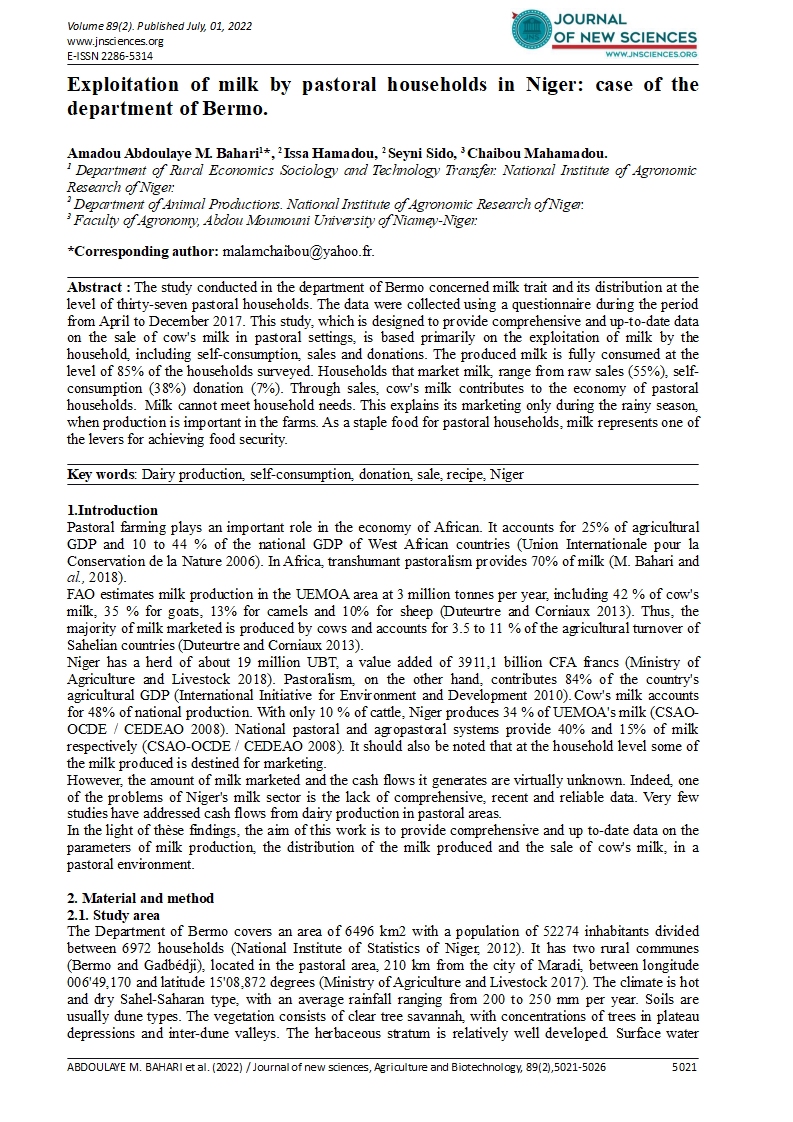

- Category: Volume 89
- Hits: 1641
Exploitation of milk by pastoral households in Niger: case of the department of Bermo.
1Amadou Abdoulaye M. Bahari
2 Issa Hamadou
2 Seyni Sido
3 Chaibou Mahamadou.
1 Department of Rural Economics Sociology and Technology Transfer. National Institute of Agronomic Research of Niger.
2 Department of Animal Productions. National Institute of Agronomic Research of Niger.
3 Faculty of Agronomy, Abdou Moumouni University of Niamey-Niger.
DOI: https://doi.org/10.55416/sunb.jns01.2207.08902
Abstract : The study conducted in the department of Bermo concerned milk trait and its distribution at the level of thirty-seven pastoral households. The data were collected using a questionnaire during the period from April to December 2017. This study, which is designed to provide comprehensive and up-to-date data on the sale of cow's milk in pastoral settings, is based primarily on the exploitation of milk by the household, including self-consumption, sales and donations. The produced milk is fully consumed at the level of 85% of the households surveyed. Households that market milk, range from raw sales (55%), self-consumption (38%) donation (7%). Through sales, cow's milk contributes to the economy of pastoral households. Milk cannot meet household needs. This explains its marketing only during the rainy season, when production is important in the farms. As a staple food for pastoral households, milk represents one of the levers for achieving food security.
Key words: Dairy production, self-consumption, donation, sale, recipe, Niger

